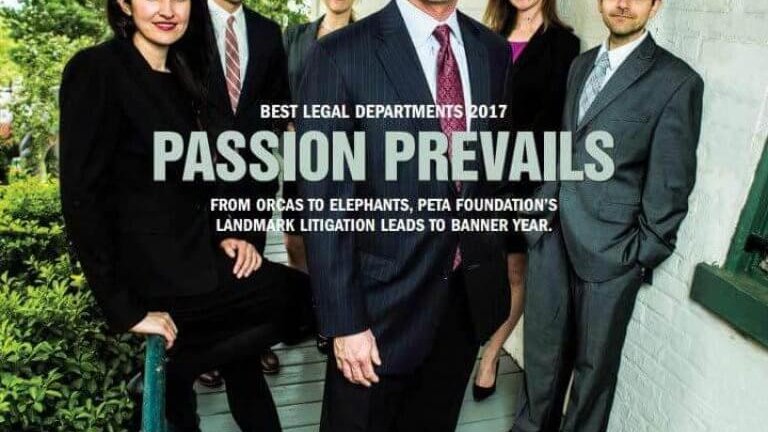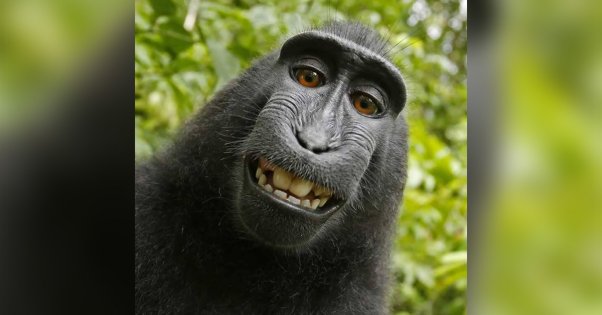The PETA Foundation’s Philip J. Hirschkop Legal Department—named for the noted civil rights attorney who’s served as PETA’s litigation counsel since its founding—houses 19 dedicated attorneys who go to great lengths to protect animals and PETA’s work to expose cruelty. The department is responsible for some of our greatest achievements and biggest headlines, and its dedicated defense of animals is a driving force behind PETA’s life-changing work.
The legal team can take much of the credit for the demise of The Mobile Zoo, a notorious exhibitor in Alabama that had a history of failing to give animals proper food and clean water, denying those who were sick and injured veterinary care, and keeping animals in filthy cages soiled with feces, urine, and rotting food. For years, PETA submitted complaints to the U.S. Department of Agriculture (USDA), which led to numerous inspections and citations. Finally, the stacks of citations became too high, and the USDA sued the roadside zoo and revoked its license to exhibit animals.
When the facility was still in operation, PETA filed an Endangered Species Act lawsuit against it to secure the release of Joe, a chimpanzee who suffered in solitary confinement inside a tiny, decrepit enclosure for more than a decade. Our legal department has a reputation for not stopping until it wins, and that was enough to persuade the owner to relinquish Joe to an accredited sanctuary, where he’s now happy and healthy. In recent years, PETA has secured the release of eight chimpanzees and 65 bears from dismal roadside zoos and backyard collections.
Our lawyers are also behind the groundbreaking “monkey selfie” lawsuit, which asked a U.S. federal court to declare Naruto—a free-living crested macaque—the copyright owner of the now-famous photographs that he took of himself. After roughly two years of court battles, the case—which was the first-ever lawsuit that sought to declare a nonhuman animal the owner of property—ended in a settlement, but not before sparking massive international discussion about the need to extend fundamental rights to animals. As part of the settlement arrangement, David Slater—the photographer whose camera Naruto used—will donate 25 percent of future proceeds from the photos to organizations focused on protecting crested black macaques in Indonesia and preserving their habitat.
PETA Foundation attorneys also work to protect our right to know about the ways other animals are used and abused. As a result of PETA lawsuits, “ag-gag” laws—which threaten crucial eyewitness investigations that expose cruelty to animals on factory farms—were declared unconstitutional in Idaho and Utah. Iowa is next on our list: A challenge to the state’s blatantly unconstitutional law is currently working its way through the courts.
But don’t just take our word about the department’s merits. Earlier this year, the PETA Foundation legal team became the first from an animal-advocacy organization—and only the second from a nonprofit—to be named one of the best legal departments by Corporate Counsel magazine. PETA Foundation General Counsel Jeff Kerr, who built the department after he joined the organization in 1993, also received a 2017 Trending 40 Corporate Counsel Award from DCA Live for his contributions to PETA’s success.
Thanks to Jeff and his team, PETA has set more legal precedents for animals than any other organization and will continue working in the courts to end cruelty and exploitation wherever they occur.
Next week, we’ll wrap up “PETA: A Force for Change” with a look at our commitment to a future without animal testing and what we’re doing to make it happen.







